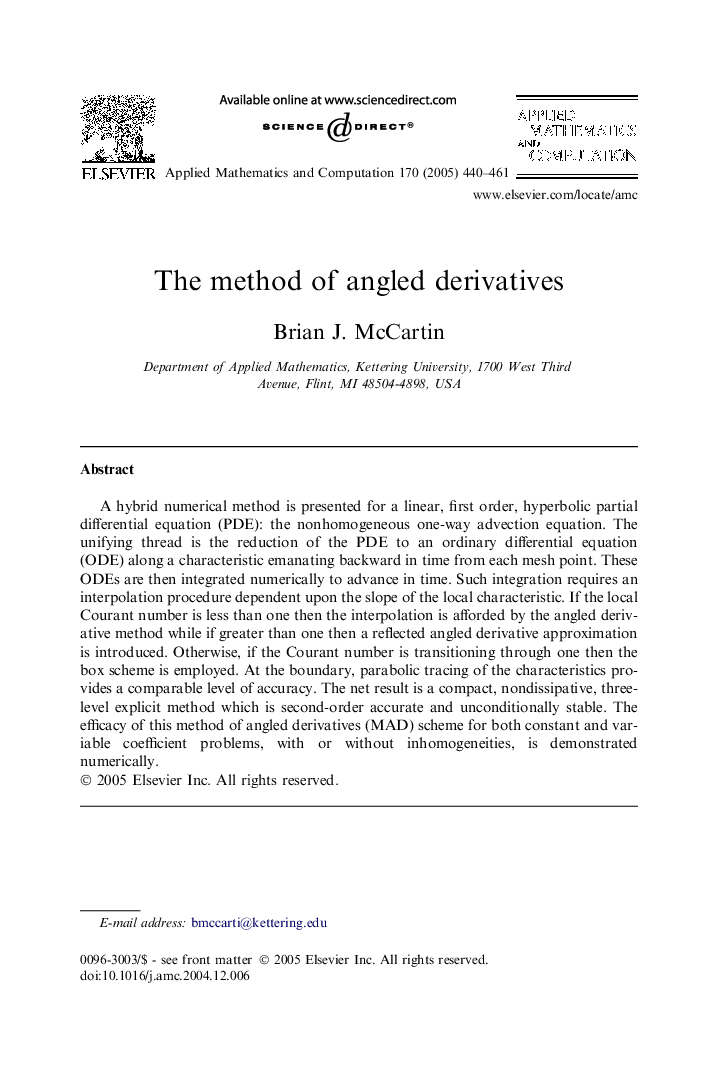| Article ID | Journal | Published Year | Pages | File Type |
|---|---|---|---|---|
| 9506545 | Applied Mathematics and Computation | 2005 | 22 Pages |
Abstract
A hybrid numerical method is presented for a linear, first order, hyperbolic partial differential equation (PDE): the nonhomogeneous one-way advection equation. The unifying thread is the reduction of the PDE to an ordinary differential equation (ODE) along a characteristic emanating backward in time from each mesh point. These ODEs are then integrated numerically to advance in time. Such integration requires an interpolation procedure dependent upon the slope of the local characteristic. If the local Courant number is less than one then the interpolation is afforded by the angled derivative method while if greater than one then a reflected angled derivative approximation is introduced. Otherwise, if the Courant number is transitioning through one then the box scheme is employed. At the boundary, parabolic tracing of the characteristics provides a comparable level of accuracy. The net result is a compact, nondissipative, three-level explicit method which is second-order accurate and unconditionally stable. The efficacy of this method of angled derivatives (MAD) scheme for both constant and variable coefficient problems, with or without inhomogeneities, is demonstrated numerically.
Related Topics
Physical Sciences and Engineering
Mathematics
Applied Mathematics
Authors
Brian J. McCartin,
